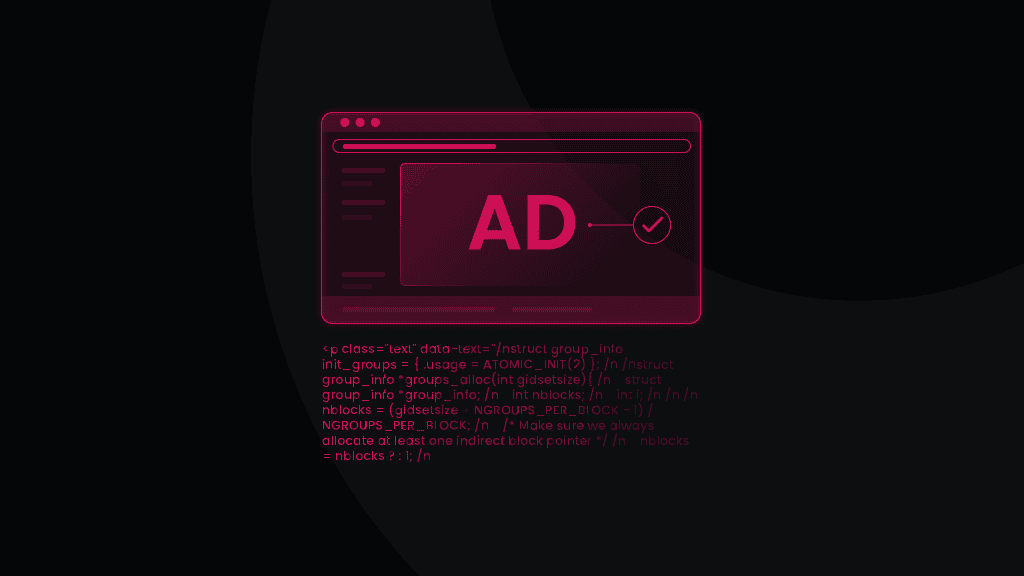Ad Verification Best Practices: A Comprehensive Guide
According to Markets and Markets research, the AdTech market is projected to grow from $579.4B (2023) to $1496.2B by 2030, with an annual growth rate of 14.5%. As the ad verification landscape accelerates, so does the need to collect publicly available real-time data.
In this guide, we’ll explore the essential strategies and techniques required to maintain ad integrity, combat fraud, and maximize campaign performance in this ever-changing industry. Our marketing experts gathered all the best practices
What is an ad verification?
Ad verification ensures that online ads are displayed accurately and meet agreed-upon standards. It validates if ads appear in the right places, at the right times, and to the intended audience.
This process helps advertisers ensure their ads reach the right people and aren't on inappropriate or fraudulent websites while staying on track with the marketing spend. Ad verification also guarantees compliance with industry rules to keep advertising transparent. It helps catch and stop ad fraud, like click or impression fraud, that often skews the marketer's campaign results. By leveraging various AdTech platforms, marketers can easily monitor ad placements, analyze performance, and identify bot traffic.
Ad verification best practices
Marketing gurus must keep their knowledge fresh to guarantee the effectiveness of advertising endeavors. Our team shares a few helpful tips:
- Do your research. It's essential for marketers to choose ad verification solutions that suit their specific requirements – consider the nature of the advertising campaigns, target audience, budget, the type of campaign, and the most relevant platforms.
- Advertise only on reputable sites. As the advertising industry grows, more platforms that promise great reach at almost zero costs pop up. However, it’s essential to check whether the platform has all the necessary safeguards in place to protect advertisers' interests and ensure their ads are displayed to genuine audiences. The most popular certificates to look for are the Interactive Advertising Bureau (IAB) and Trustworthy Accountability Group (TAG).
- Comply with data privacy regulations. Choose ad verification solutions that maintain transparency about data collection and analysis processes and adhere to applicable regulations.
- Blacklist bots. Even if you identify the bot traffic and exclude it from the ad campaign, it’s essential to blacklist fake traffic bots for all your ads.
- Monitor your campaigns regularly. Ad verification is not a one-off task, so marketers should monitor businesses' advertising campaigns regularly. Schedule a daily or weekly check-up on all your online ads and identify whether the ad spend matches the expected return on investment and if the bot traffic didn’t influence the results.
How can proxies help you with ad verification?
Proxies can be super helpful for ad verification. When you're verifying whether your ads are displayed correctly, most of the time, you can only check the placements that were set for your region. But if you’re running global campaigns, you can only verify the placements by switching your original IP address. That's where proxies come in handy.
Proxies act like a bridge between you and the internet, routing the traffic through a different IP address. So, instead of checking from just one spot, you can use proxies to view ads from various global locations.
Ads might look different depending on the region. As each country has its own set of rules for advertisers, some might not display your ad image, or the bot might automatically tweak the text ad to fit the local context. With proxies, you can hide your real IP, which is crucial for ad verification. Most ad platforms collect data like cookies or ISP (Internet Service Provider) info, so the results might be tied to your region even if you use some advanced AdTech platform. Also, proxies help avoid getting blocked by ad platforms. If you're checking the ads frequently, anti-bot systems might identify you as a bot and restrict your access to the platform.
Marketers often use proxies because they can help simulate different devices and browsers. Most ads appear differently on a mobile device than on a computer or Chrome versus Mozilla Firefox. With proxies, you can mimic these different setups and make sure your ads look good everywhere.
How to choose proxies for ad verification?
Choosing the right type of proxies is important for ensuring accurate and reliable results when running ad verification checks. Here's a breakdown of steps to go through when choosing a proxy:
- Assess your needs. Determine the specific requirements of your ad verification process. Consider factors such as the number of locations you need to check ads from and the frequency of checks.
- Browse proxies for AdTech. There are different types of proxies, including datacenter, residential, ISP, and mobile proxies. Datacenter proxies are fast and cost-effective but may not provide the necessary location diversity or high authenticity as they originate from data centers and might be an easy target for anti-bot systems. Mobile proxies simulate mobile device connections, offering a diverse list of ASNs, but they’re considered a premium proxy type with a higher price tag than datacenter ones. Static residential proxies or ISP proxies combine the stability of datacenter proxies with the residential proxies' speeds, but they often lack an extensive country list. Last but not least – residential proxies offer IPs associated with real household devices connected to the local networks, providing greater authenticity, often coming with IP pools from various locations.
- Evaluate proxy providers. Research and compare different proxy providers to find a perfect match. Look for providers with a good reputation for reliability, speed, and 24/7 customer support. As ad verification requires diverse locations, choosing the provider offering big IP pools with extensive location coverage is best.
- Test the proxy performance: Before committing to a provider, test the proxy type that suits your needs. First and foremost, pair your app or browser with proxies, visit an IP checker website like What is My IP?, and check whether your original IP address was swapped with a proxy one.
Bottom line
Ad verification is a task that every marketer should include in their agenda. When done manually, such tasks might require a lot of time and effort; however, with the growing need, more platforms are popping up in this landscape. As Robert Cannon once said, everything that can be automated will be automated, so do your own research, leverage the industry’s best practices, equip residential proxies, and run your ads like a pro.
About the author

Vilius Sakutis
Head of Partnerships
Vilius leads performance marketing initiatives with expertize rooted in affiliates and SaaS marketing strategies. Armed with a Master's in International Marketing and Management, he combines academic insight with hands-on experience to drive measurable results in digital marketing campaigns.
Connect with Vilius via LinkedIn
All information on Smartproxy Blog is provided on an as is basis and for informational purposes only. We make no representation and disclaim all liability with respect to your use of any information contained on Smartproxy Blog or any third-party websites that may belinked therein.










